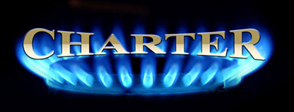Over the past couple of months, many different companies have been warning homeowners just how much of an impact their water could potentially be on their savings. Principal Hydrogeochemist – Pauline Smedley who works for the British Geological Survey stated that, “Many of the water companies in the South East of England extract groundwater from chalk bedrock for their main water supply”. Places like Kent are known to have hard water, and this is due to the county’s geology.
There has been a major demand for softened water in Kent which has doubled over the last 12 months, it has increased by 95% since just last year – this is according to Harvey Water Softeners. The demands aren’t being met as more and more properties are being built in an area that has the hardest water.
Hard water can be very dangerous as it holds high levels of calcium and magnesium which is one of the major causes for limescale inside boilers, washing machines and kettles. There are ways to fix this as water softening units are fitted into commercial and domestic properties in order to remove the limescale and any other particles left behind.
Other appliances are fitted too such as drinking faucets so homeowners can still drink water all the while protecting themselves and their assets within their home. Having hard water within your home can have a major impact as homeowners go through brand new appliances such as kettles every 4 months or their taps seize up and don’t work.
Having soft water means that your expenses stay on the down low and keeps your homes warmer as boilers don’t become susceptible to limescale and other damages caused by hard water. Our advice to you if you live in an area with hard water, then to use a hard water postcode checker and always keep an eye on your appliances.

